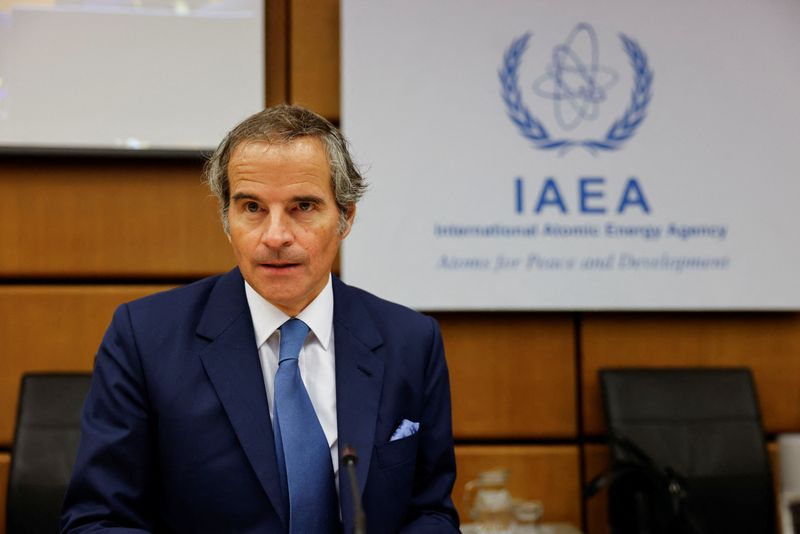By Francois Murphy and John Irish
VIENNA (Reuters) - A quarterly meeting of the U.N. nuclear watchdog's main policy-making body began on Monday with Western powers again choosing not to seriously confront Iran over its failure to cooperate with the agency on a range of issues, diplomats said.
It is more than a year since the International Atomic Energy Agency's 35-nation Board of Governors passed a resolution ordering Iran to cooperate with a years-long IAEA investigation into uranium particles found at undeclared sites, saying it was "essential and urgent" for Iran to explain the traces.
Since then the number of undeclared sites being investigated has shrunk to two from three but the list of problems between the IAEA and Iran has only grown. Iran failed to fully honour an agreement to re-install IAEA cameras at some sites and in September barred some of the agency's most valued inspectors.
"I ... deeply regret that Iran has yet to reverse its decision to withdraw the designations for several experienced Agency inspectors," director general Rafael Grossi told the Board meeting.
"Only through constructive and meaningful engagement can all of these concerns be addressed and once again I call upon Iran to cooperate fully and unambiguously with the Agency."
With Israel's military offensive in Gaza continuing in response to Hamas's Oct. 7 attacks, heightening tensions across the Middle East, the United States did not want to risk further diplomatic escalation with Iran by pushing for a resolution against it at the IAEA, diplomats said.
"If you did do an (IAEA Board) resolution right now ... it's too dangerous to do anything that could be construed as a wrong signal that could trigger a miscalculation," a Western diplomat said, citing various factors.
"The region is in this heightened state, you don't have a ceasefire or resolution of any sort in Gaza, we don't have the prospects of any kind of nuclear solution, and ... the U.S. is going into presidential elections," they said.
Diplomats had said before the Board meeting that the three European powers that proposed the last resolution jointly with the United States and generally act in coordination with Washington - Britain, France, and Germany, known as the 'E3' - were pushing for a resolution and had drafted a text.

Washington, however, has opposed seeking a resolution against Iran for months, at least in part because of the impending U.S. presidential election in November, diplomats have said, and again it was the most reluctant of the four powers.
The United States and E3 have been vocal in criticising Iran on these and other issues, such as its growing stockpile of enriched uranium that would be enough, if enriched further, to fuel several nuclear bombs. Iran says it has no such intention.